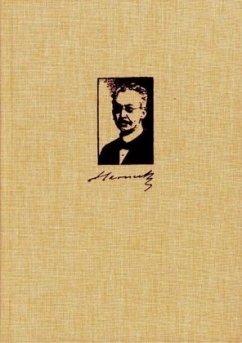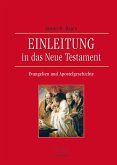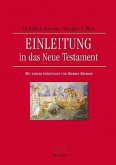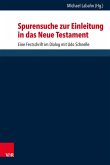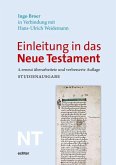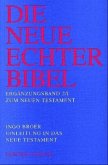For the first time, a transcript of a lecture held by Adolf von Harnack (1851-1930), an eminent editor of scholarly works, a theological historian and a research manager, is now available. Harnack was one of the outstanding exponents of Protestant theology; Rudolf Bultmann, Dietrich Bonhoeffer und Ernst von Dobschütz were among his students. The transcript of this lecture, which he held in the fall semester of 1899/1900, provides a great deal of insight into Harnack's impact as a New Testament scholar, which has received little attention up to now when compared to Harnack the outstanding historian who dealt with church history and the history of dogma. The edition includes indexes of biblical passages and persons (with short biographies) as well as a list of all those ancient authors and writings which are cited. The afterword provides information on Harnack's work as a teacher of the New Testament, gives a portrayal of the author of the lecture, outlines the situation pertainingto the relevant archival records und describes the principles of the edition.
»This book supplies a welcome glimpse into Harnack as an instructor, and in a time when the lines between New Testament and early Christian studies are once again blurry, it allows us to see a major historian of early Christianity wrestling with the Christian church's foundational scripture, even if the results in hindsight are admittedly mixed. Harnack's New Testament work certainly deserves more attention than it has hitherto received, and we can thank the editor for supplying one more avenue for facilitating that attention.« David Lincicum, Review of Biblical Literature
